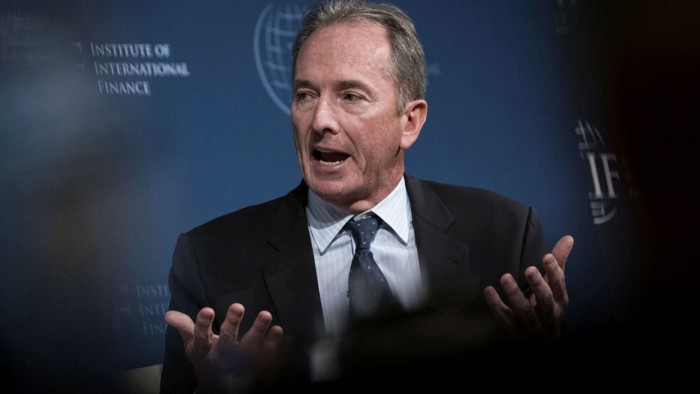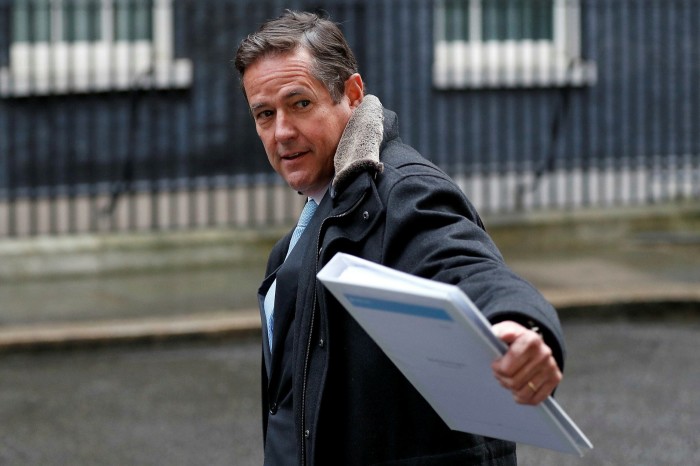Investment bank critics swing and miss


Roula Khalaf, Editor of the FT, selects her favourite stories in this weekly newsletter.
The Major League Baseball season has begun, despite disruption from the coronavirus. Now fans can return to worrying about the sport’s trend for increasingly dull games as more batters are struck out swinging for the fences.
In business, this last term — the risky attempt to hit the ball powerfully in search of home runs — has been widely adopted as a cautionary cliché. “We are proactive risk managers — we don't swing for the fences,” said the chief financial officer at WPX Energy on a recent typical earnings call.
On Wall Street, it has become endemic. Since the 2008 crisis, even non-natives such as Morgan Stanley’s Australian-born chief executive James Gorman have used it to describe what they are no longer doing.
No excessive risk taking, no outsized bets, no more monster trading desks. Virtue — and supposedly profits — now lie in safer pursuits. At Morgan Stanley, Mr Gorman shifted towards reliable wealth management. At Goldman Sachs, it was a historic pivot to consumer banking.
Over the past decade, investors and regulators aligned to chide the holdouts into shrinking or abandoning altogether their trading operations, especially in “fixed income” — bonds, interest rate products, currencies and commodities. This week ABN Amro became the latest to announce major cuts.
But at the same time the effects of the pandemic have challenged the prevailing narrative. Those who defied the fashion and clung on to big fixed income desks have seen the benefit this year. As markets swung violently and the US Federal Reserve slashed rates, investors and companies rushed to react. Banks cashed in.
It was not Goldman’s new consumer lending business that made it money in the latest quarter but the trading that is much closer to its roots. Fixed income revenues were a colossal $4.2bn and the broader trading business contributed $1.9bn in net profits. The much ballyhooed consumer business made puny revenues of $258m, down from the first quarter, and recorded a loss.
Morgan Stanley made $3bn from fixed income trading in the quarter. Mr Gorman has done a good job talking up steadier business lines, but he never really abandoned fixed income trading. Other banks that did — such as UBS — felt the absence.

Nowhere has the trend brought more relief than at Barclays, where chief executive Jes Staley has resisted a campaign by his biggest shareholder, activist investor Ed Bramson, to shrink trading. Barclays made £1.5bn from fixed income trading.
Rather than admit defeat, Mr Bramson has dismissed the numbers as “distorted” by the coronavirus effects and noted that shares in Barclays continue to underperform those of Deutsche Bank, which has placed its trading business on a stricter diet.
“In the real world, investors continually show that they just do not care very much about the trading business,” Mr Bramson wrote in a letter to his fund’s investors. “If Barclays sincerely intends to prioritise shareholder value, this is something that, like DB, it will need to understand.”
Well, maybe. Then again investors should care. Do they want exposure to the consumer, with spiralling unemployment and a tidal wave of defaults coming, or markets, with benign volatility and prices backstopped by the Fed?
Banks have managed to lose money recently not in trading accidents but through problems stemming from bad lending decisions and debt issuance — such as ABN Amro and Commerzbank’s losses on Wirecard and Goldman’s multibillion-dollar fine for its role in a vast Malaysian corruption scandal.
Meanwhile, massive fixed-income revenues have helped soak up massive provisions for future consumer loan losses at banks including JPMorgan Chase and Barclays. Some banks, such as Deutsche, have not needed big fixed income revenues as they are not making large provisions. Perhaps that means the German lender’s business is fundamentally safer; it could also mean it cannot afford to confront the reality of its souring loan book. Who is swinging for the fences, really?
Comments